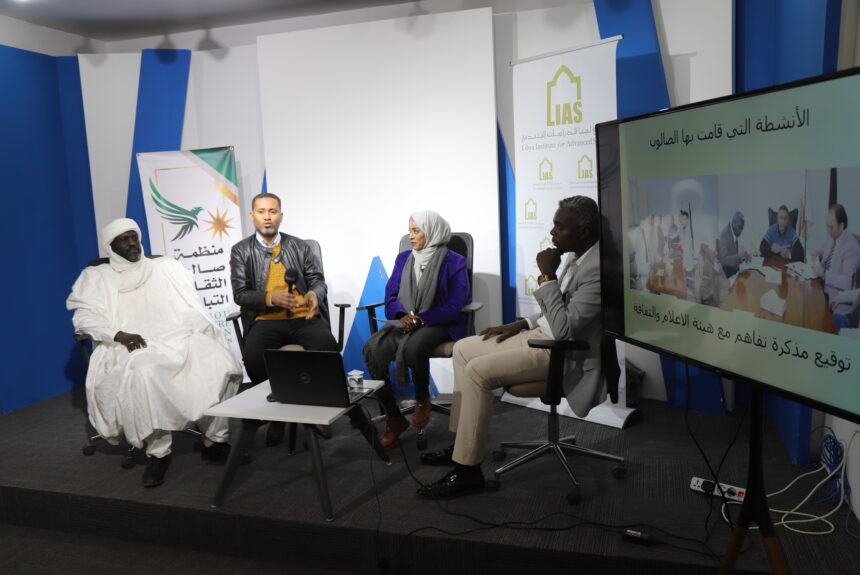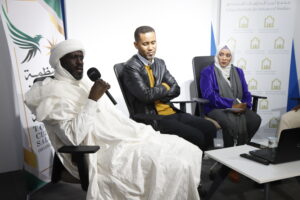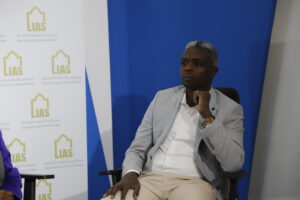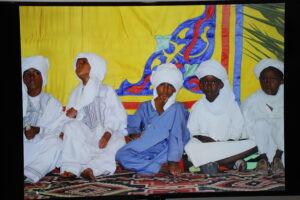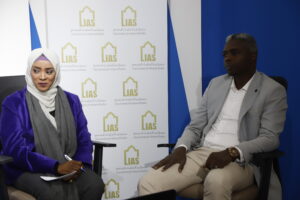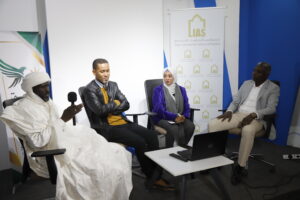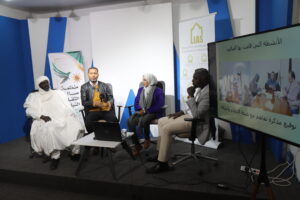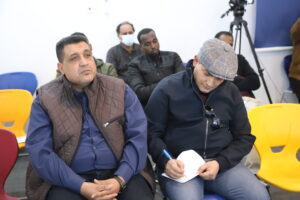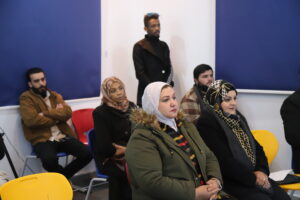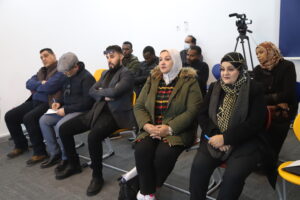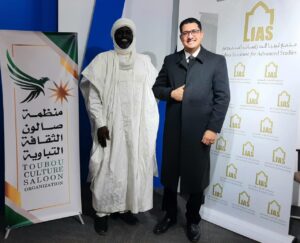Today, Wednesday, February 9, the Libya Academy for Advanced Studies hosted the Tebawi Culture Salon at its headquarters in the city of Benghazi, to speak in a symposium entitled: Tebawi Culture “Definition and History.”
The symposium was moderated by Ms. Saeeda Ali, and she welcomed the guests and participants in this symposium: Mr. Tariq Qalma, Mr. Abdul Karim Al-Tabawi, and Mr. Zakaria Al-Kurdi.
Professor Abdel Karim Al-Tabawi introduced the Tebawi Cultural Salon and highlighted the most prominent activities he carried out, the most prominent of which were: short story festivals about the Tebawi cultural heritage, and a 3-day Tebawi Heritage Festival about food, dress, customs, and the Tebawi arts.
Professor Zakaria Al-Kurdi spoke about the Tebu language, the spread of Tebu in neighboring countries, and the necessity of establishing a museum that highlights Tebu civilization and culture.
Mr. Tariq spoke about the integration of the Tebu into the city of Benghazi and eastern Libya, the role of the Tebu in determining the fate of the nation, supporting stability, and searching for a way out of all crises, and the historical, cultural, tribal, and peaceful relations between the Tebu and the rest of the tribes who are partners of the nation.
At the conclusion of the session, they talked about the Tebawi dress and the choice of white color for men, the similarity of the dress to many other cultures, the Tebawi woman’s dress from childhood until she becomes a woman, some rituals and customs, the role of the Tebawi woman and her standing beside the man in all stages of life, and the existence of a special custom.” A local constitution and arbitration councils to decide on all issues and problems that occur between the people of the Tebu, and women’s participation in them, in addition to their bearing responsibility for the home and all family affairs.


